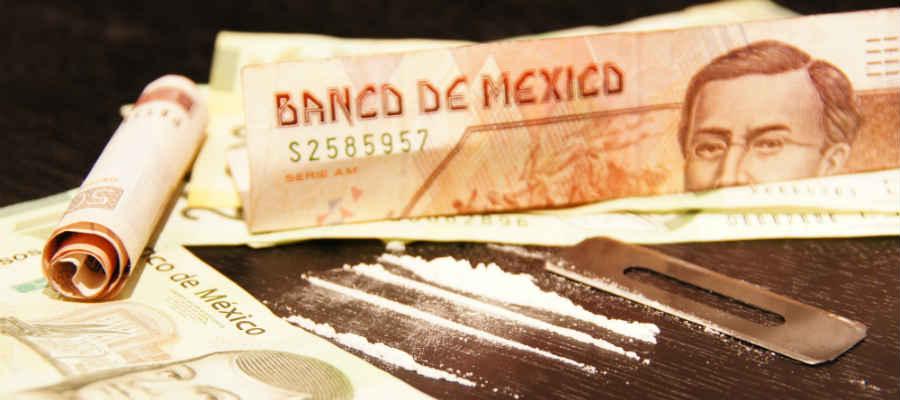
Treasury Sanctions Mexican Attorneys Tied to Sinaloa Cartel
On September 11, 2014 the United States Department of the Treasury’s Office of Foreign Assets Control (OFAC) announced the designation of three Mexican attorneys because of their links to major drug traffickers Rafael Caro Quintero and Juan Jose Esparragoza (a.k.a. “El Azul”). As a result of the of the Government’s actions, all assets of those designated that are based in the United States or are in the control of U.S. person are frozen and U.S. persons are generally prohibited from engaging in transactions with them.
The designations were made pursuant to the Foreign Narcotics Kingpin Designation Act (Kingpin Act), a law that was enacted following the success of the counter narcotics trafficking sanctions used to dismantle the Colombian drug cartels and issued pursuant to the IEEPA statute. The Kingpin Act authorizes the president to impose counter-narcotics sanctions without having to declare a specified national emergency. The statute is a standing order issued by Congress finding that international narcotics trafficking poses a threat to U.S. national security and that the president is authorized to impose sanctions to deal with that threat as he sees fit without any additional pretext.
The attorneys designated by OFAC in this action appear to be associates of previously designated Mexican attorney Juvencio Igancio Gonzalez Parada. Mr. Parada is believed to be a longtime advisor to Rafael Caro Quintero and Juan Jose Esparragoza. OFAC specifically targeted Jose Avina Bribiesca, Ignacio Gonzalez Hernandez, and Janette Iliana Gonzalez Linares, all of whom are attorneys based in Guadalajara, Mexico. The Government believes that Avina Bribiesca and Gonzalez Hernandez, the son-in-law and son of Mr. Parada, respectively, along with Gonzalez Linares are involved in a range of activities on behalf of the Caro Quintero and Esparragoza Moreno networks, including the management of real estate. Additionally, Avina Bribiesca, Gonzalez Hernandez, and Gonzalez Linares are believed to hold official positions in the Guadalajara-based real estate company Bona-Habitat, which was also designated because it is controlled by Mr. Parada.
Although anyone who chooses to knowingly facilitate international narcotics trafficking is rightfully subject to U.S. economic sanctions, one hopes that the U.S. government employs a higher-than-normal burden of proof before adding attorneys to the SDN list. And hopefully the U.S. government does not conflate an attorney’s assertion of an SDN’s rights as activities worthy of being sanctioned pursuant to the Kingpin Act. One’s access to an attorney and ability to be legally represented are important pillars of American democracy and due process. By designating Rafael Caro Quintero’s and Juan Jose Esparragoza’s attorneys the U.S. may inadvertently be sending the message that only its citizens and its residents are deserving of such rights.
From OFAC’s press release, it appears that the designated attorneys may have been involved in real estate transactions, presumably involving the proceeds of drug trafficking. Hopefully the evidence was both compelling and credible enough so as not to inadvertently interfere with Quintero’s and Esparragoza’s otherwise legitimate right to be represented by counsel. My concern stems from OFAC’s low burden of proof to make SDN designations pursuant to the Kingpin Act.
As was revealed by the Judicial Review Commission on Foreign Asset Control in its report, OFAC only needs “reasonable cause to believe” someone is directly or indirectly involved in narcotics trafficking activities to be lawfully placed on the SDN List. Such a burden falls well short of proving something “beyond a reasonable doubt,” as is required to sustain a criminal conviction. OFAC’s standard is even less than “probable cause,” which is usually needed before law enforcement can arrest someone or search a person’s home.
In fact, “reasonable cause to believe” appears to be equivalent to “reasonable suspicion” in law enforcement terminology. Reasonable suspicion is all law enforcement needs to briefly detain and pat someone down. But as we all recognize, the consequences of being designated and placed on OFAC’s SDN list are much more burdensome and significant than being patted down or briefly detained. Many attorneys practicing in this area of law have actually described an SDN designation as an economic death penalty.
The attorneys designated by OFAC can challenge their designations by filing a request for reconsideration with OFAC. Such requests can be both time consuming and factually intensive affairs. SDN reconsiderations are also burdensome for designated persons because OFAC does not normally have to reveal the evidentiary bases of its designations. However, with proper investigation and evidentiary fact-finding, a designated person may be able to credibly demonstrate to OFAC that its original basis of his or her designation was inaccurate or incorrect.
Disclaimer: Blog posts should not be relied upon as legal advice and are only provided for informational purposes. Information contained in blog posts may also become outdated with the passage of time as laws change and U.S. foreign policy and national security objectives evolve.

